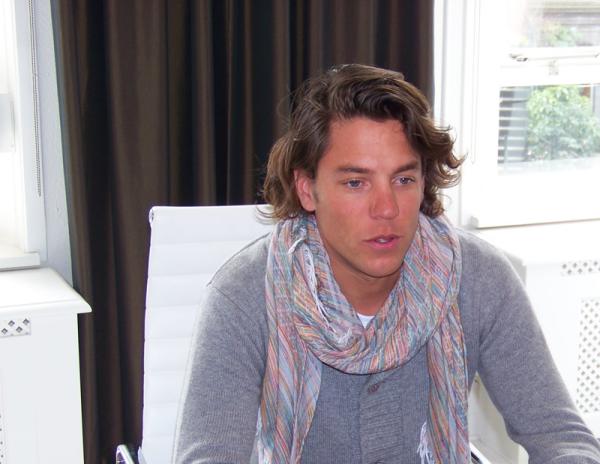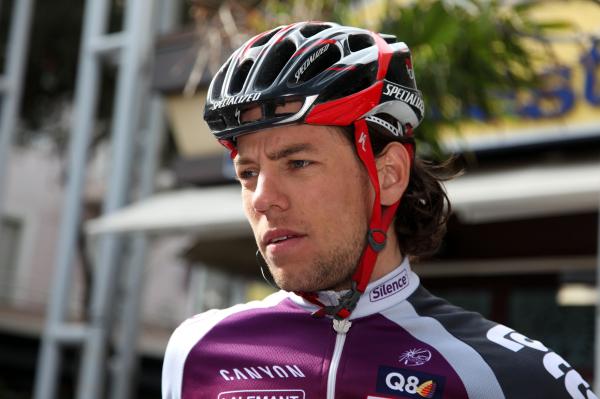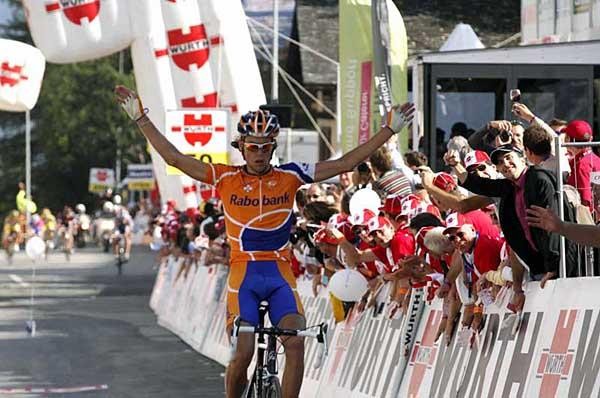Dekker says Vaughters gave him a wake-up call
Too much success too soon made him feel invincible



Thomas Dekker said that getting rejected by Jonathan Vaughters and Team Garmin in 2008 was the “wake-up call” he needed to turn his life around. He achieved fame, fortune and success too early, and needed to be brought down to earth again.
Dekker, now 26, turned pro with Rabobank in 2005, after two highly successful years on their continental team. His successes continued in the ProTour, but publicly things started falling apart in the summer of 2008. Ultimately it was announced that a doping control he gave on Christmas Eve 2007 was positive for EPO, and he is currently serving a suspension through July 1 of this year.
He does not deny using EPO, admitting that he made the mistake and no one else is to blame. In an interview with AD.nl, the Dutchman said that he seemed to be living in a “bubble” at the time, with nothing able to affect him.
Rumours of doping and conflicts with Rabobank became rampant in the summer of 2008, and he was not taken to the Tour de France. Almost immediately after the Tour, stories about problems with his blood values arose. But that did not concern Dekker at all, as he was secure in his “bubble”.
“I didn't care at that time. I was believing my own story. I had forgotten about the mistake I made. I even got a letter from the UCI saying that there was no problem with my blood values. I was starting to believe I was invincible. That made me even stronger. But nobody is invincible...”
Even the prospect of losing his contract with Rabobank didn't bother him. “While everybody was writing, speaking and worrying about my situation, I was close to signing a super contract. The day after the 2008 Tour de France I met with Jonathan Vaughters. That 'the clean team' was interested sounded logical to me. It gave me a way out of the other situation. I had decided I'd change as soon as I put my signature to paper. Like always I was in control, who else? The bubble...”
Vaughters and Dekker met in Brussels the day after the Tour, “and it was fantastic. They offered a super contract. When we said goodbye that Monday, Vaughters just told me: 'Thomas I only need to control your blood values, because that's the routine we follow as a team. After that the only thing left is your signature.' No problem JV. I had nothing to worry about. Hey, I even had a letter from the UCI in which it was written that there were no problems with my blood values. The bubble...”
Get The Leadout Newsletter
The latest race content, interviews, features, reviews and expert buying guides, direct to your inbox!
However, he soon came crashing down. Within days he heard back from Vaughters, who said, “'I'm sorry Thomas, but the deal is off. I can't sign you. The rumours, the control I did. You know our team policy. You made a mistake that you didn't have to make. I know your qualities, I've followed you since you were an U23 rider. This is bad. I'll give you some advice: get out of this and move on. Use your natural talent.'
"That was it," Dekker explained. "The wake up call. The first person who made me realise the situation I was in. The bubble burst.
"From that moment I changed.”
When the positive doping control was announced in July 2009, Dekker was disbelieving, not entirely out of shock at having been caught. “Because I knew I had changed since the conversation with Vaughters. I was clean. But again I made a mistake and I'm paying the price for it now. I needed to move on, and I did."
Still, he did not accept his fate quite so matter-of-factly at the time. In 2010, he told Cyclingnews that the following six months were hellish. He spent a lot of time on Ibiza, partying all night and sleeping until late in the afternoon, putting on 11 kilos.
“For me the moment came at the end of the year when I realised , “What do you want, Thomas, do you want to come back? You were always strong when you were young, you had the qualities, you have to change something in your life.”
He then got in touch with some old friends who took over his management and helped him get back into shape, both professionally and personally.
Dekker now is looking forward to racing again, with his goal moving closer. He is confident that he will be back in the peloton this summer.